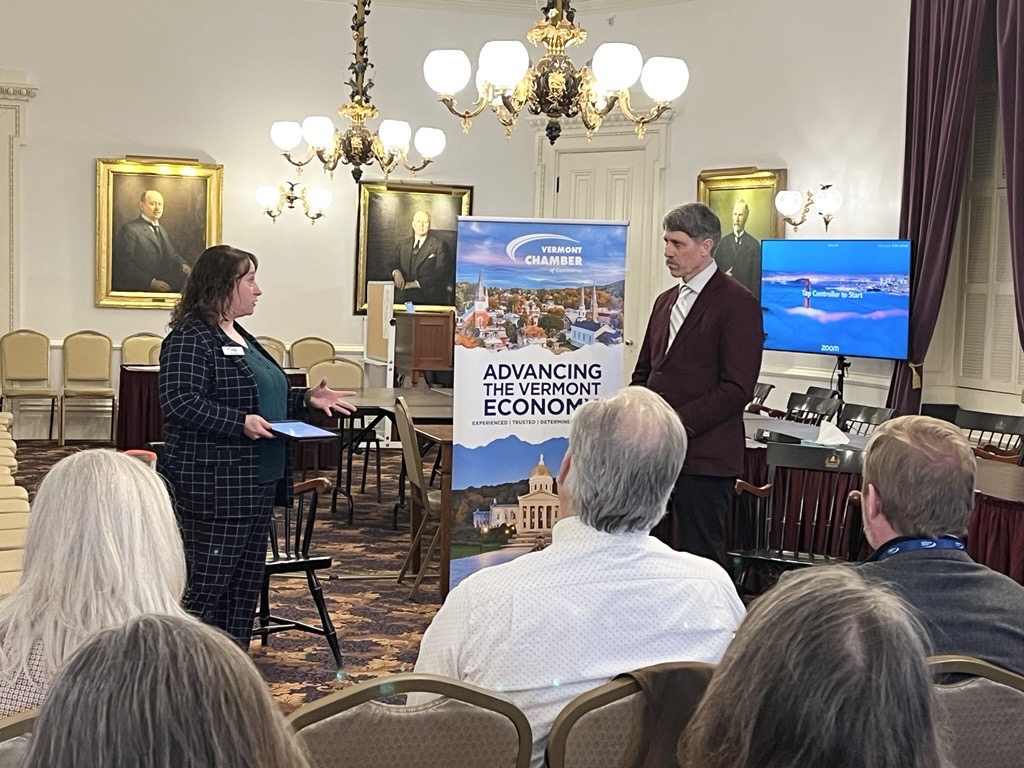By Chris Carrigan, Vice President of Business Development for the Vermont Chamber of Commerce
Vermont, along with the rest of the world, is dealing with an unprecedented public health emergency. The toll on our communities and businesses has been significant.
As the COVID-19 pandemic disrupts supply chains and reveals shortages of emergency health care supplies needed by hospitals, Vermont’s manufacturing community is stepping up with innovation, commitment to community, and action.
To support the fight against COVID-19, the Vermont Chamber of Commerce, partnering with state and federal government agencies, is engaging manufacturers to quickly locate urgently needed medical supplies and to identify manufacturers who can retrofit and adapt their operations to manufacture essential personal protective equipment (PPE), medical devices, and life-saving medicines.
Personal protective equipment, including N95 masks, ventilators, and hand sanitizer, top the list of most-needed supplies. And Vermont manufacturers are stepping up to the plate. GlobalFoundries has donated N95 masks to Vermont Emergency Management and is providing technical specifications for additional items. Generator is prototyping, testing, and planning the production of PPE including face shields, N95 masks, and ventilators. Vermont Teddy Bear is sewing more than 4,000 face masks so that N95 masks can be reserved for health care workers on the front lines. And distilleries around Vermont, including Green Mountain Distillers, SILO Distillery, Barr Hill by Caledonia Spirits, Mad River Distillers, and Smugglers’ Notch Distillery are producing hand sanitizer and giving it to those in need. Additional manufacturers from Manufacturing Solutions Inc., Fulflex and Revision Military to Collins Aerospace and Stephens Precision have also stepped forward with readiness to aid in the production of PPE.
It is also important to recognize the essential work being done by Vermont’s cluster of medical device manufacturers. From Bio-Tek and Chroma Technology to GW Plastics, IVEK Corporation, and Micro Wire Transmission Systems, these manufacturers are in motion producing essential consumer health products and medical devices for Johnson & Johnson, Boston Scientific, and Siemens Healthcare Diagnostics.
Vermont Chamber work also extends to Canada, and, in partnership with our neighbors to the North, we are tapping cross-border supply chain contacts to identify manufacturers with excess supply and who can aid in the production of PPE.
As we collectively deal with this pandemic, the manufacturing community is Vermont strong and playing an instrumental role in the fight against COVID-19. According to a Vermont Chamber survey, essential manufacturers are still hard at work. Ninety-seven percent of respondents are using social distancing for their operational employees. Eighty-nine percent are using site visit controls. Eighty-three percent are limiting travel. Sixty percent are implementing shift schedules and 17% are conducting temperature screening. These and additional measures are being taken by our manufacturers to ensure the welfare of employees and continue production of critically needed medical supplies.
For more examples of how Vermont manufacturers and businesses are helping during the pandemic, visit our blog post.





 Aly Richards is the CEO of Let’s Grow Kids, a nonprofit organization on a mission: ensuring affordable access to high-quality child care for all Vermont families who need it by 2025. She lives in Montpelier.
Aly Richards is the CEO of Let’s Grow Kids, a nonprofit organization on a mission: ensuring affordable access to high-quality child care for all Vermont families who need it by 2025. She lives in Montpelier. 


